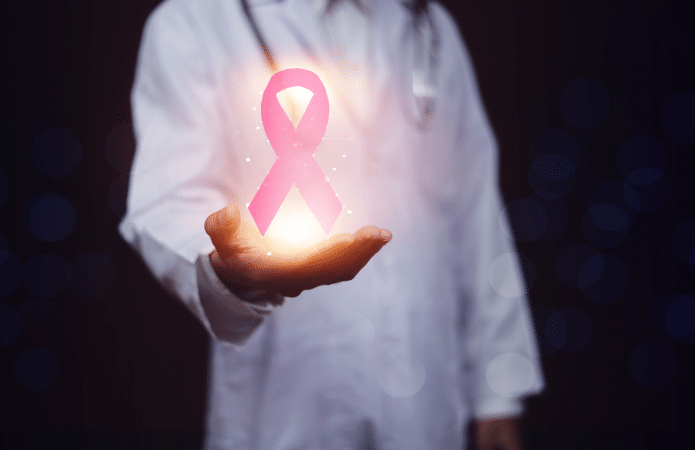
At Salenger, Sack, Kimmel, & Bavaro, we are dedicated to raising awareness about critical health issues that impact our community. Breast cancer remains a significant concern, being the second leading cause of cancer death in women. According to the American Cancer Society, approximately 42,250 women in the United States will die from breast cancer this year, and 310,720 new cases of invasive breast cancer will be diagnosed. Notably, the incidence rates have been increasing by 0.6% per year, with a 1% increase in women younger than 50. Early detection is crucial in combating this disease, and recent guidelines and advancements in genetic testing have made it easier to assess and manage breast cancer risk.
July is recognized as National Medical Malpractice Month, a crucial time to raise awareness about medical errors and advocate for patient safety. This month underscores the importance of vigilance in healthcare, particularly highlighting the significance of early detection for breast cancer. Early diagnosis can dramatically improve outcomes and survival rates, making timely and accurate medical care essential. As we observe this month, it’s a reminder to prioritize regular screenings and advocate for thorough, attentive medical attention to prevent malpractice and ensure the best possible health outcomes.
The American College of Radiology (ACR) now recommends that every woman receive a breast cancer risk assessment by age 25. This assessment can be performed by a primary care provider and is vital for identifying women who are at higher risk due to genetic factors, family history, and other risk factors. If a woman’s overall lifetime risk is more than 20%, she is considered to be in a high-risk group, necessitating the beginning of breast cancer screening between the ages of 25 to 40, instead of the standard starting age of 40.
Genetic counseling and genetic testing are essential tools in understanding and managing breast cancer risk. Companies like Myriad Genetics, Ambry Genetics, and Invitae provide comprehensive genetic testing services that can identify mutations in genes such as BRCA1 and BRCA2, significantly increasing the risk of breast cancer.
Genetic counseling helps individuals understand their test results and their implications. Counselors provide guidance on preventive measures, including increased surveillance, lifestyle changes, and, in some cases, prophylactic surgeries.
Women from minority groups face a higher risk of breast cancer and are 127% more likely to die from it before age 50 compared to White women, according to the ACR. Black women, Ashkenazi Jewish women, and other minority groups are at higher risk due to a greater prevalence of BRCA1 and BRCA2 gene mutations. For individuals with these mutations, the risk of developing breast cancer is more than 60% to 70%.
Black women and Ashkenazi Jewish women not only have a higher likelihood of having BRCA gene mutations, but Black women also tend to develop more aggressive types of breast cancer, such as triple negative or ER negative cancers, at a younger age compared to White women. These tumors tend to grow and spread faster, contributing to the disparity in breast cancer mortality rates. In fact, 40% more Black women die from breast cancer compared to White women at premenopausal age.
Failing to diagnose breast cancer in a timely manner can have severe consequences. Early-stage breast cancer is often more treatable and has a higher survival rate compared to advanced stages. Delayed diagnosis can lead to the cancer spreading to other parts of the body, making it more difficult to treat and significantly lowering the chances of survival.
At Salenger, Sack, Kimmel, & Bavaro, we understand the devastating impact that delayed or missed breast cancer diagnoses can have on individuals and their families. We advocate for patients’ rights and strive to hold medical professionals accountable when there is a failure to provide the standard of care.
We encourage women to be proactive about their health, to seek regular screenings, and to discuss their breast cancer risk with their healthcare providers. Early detection and intervention are the best defenses against breast cancer.
Breast cancer is a serious health issue that requires prompt and effective medical attention. The new ACR guidelines for early risk assessment and the availability of genetic counseling and testing are valuable tools in the fight against this disease. Choosing a knowledgeable and compassionate healthcare provider is crucial for early detection and effective treatment.
Feeling comfortable with your doctor and having confidence in their expertise is paramount. Your healthcare provider should be well-trained and experienced in breast cancer detection and treatment. It’s important to choose a doctor who stays updated with the latest guidelines and advancements in breast cancer care.
Doctors should be proactive in discussing breast cancer risk with their patients, especially those with a family history of the disease. They should also encourage and facilitate access to genetic counseling and testing for those who might benefit from it.
At Salenger, Sack, Kimmel, & Bavaro, we are committed to supporting women in their journey to better health and advocating for those affected by medical negligence. By raising awareness and promoting proactive health measures, we hope to contribute to the ongoing effort to reduce the impact of breast cancer.
For more information on breast cancer risk assessment, genetic testing, and your legal rights, please contact us. We are here to help you navigate these challenging times with compassion and expertise.